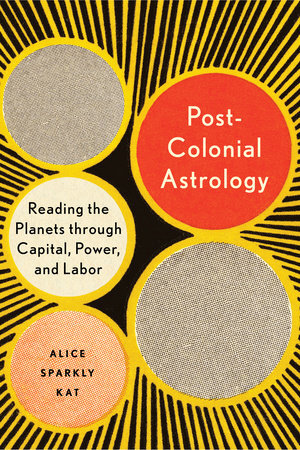About Postcolonial Astrology
Astrology is a language that millennials, Gen Zers and many others continue to build fluency in, and look to to inform their everyday lives, decisions and relationships. But so much more than a fad, astrology is an intersectional, political and magical language with a cross-cultural history that informs our relationships to the planets. According to Brooklyn-based astrologer Alice Sparkly Kat, astrology is the ideal magical lens through which we can parse the harsh neolliberal and colonial systems of power that harm marginalized people. It’s these very systems that misappropriate the language, symbols and wisdom of the planets to prioritize self over the collective.
Impeccably researched and informed by the author’s deep knowledge, Postcolonial Astrology offers an advanced course in politicized astrological history and application, and an explicitly Queer, POC and instersectional resource. This is not a “learn your sun sign” introductory guide. Rather, the book serves as a history and toolkit, decoding the planets from a postcolonial perspective. In one chapter Sparkly Kat traces the disparate cultural applications of the planet Saturn. Once symbolically linked to fortune and a mythic agrarian “golden age” of abundance, Saturn’s qualities have been co-opted by political agendas and misused by power and capital interests. We see this misappropriation of Saturn’s wisdom embodied by the Jeffersonian vision of a white, land-owning state that mythologizes an imaginary agrarian golden age that perpetuated violence against marginalized bodies.
Other topics discussed throughout the book include the Moon and money, Venus’s gender evolution, and Mars and masculinity, in addition to many other potent conversations.
